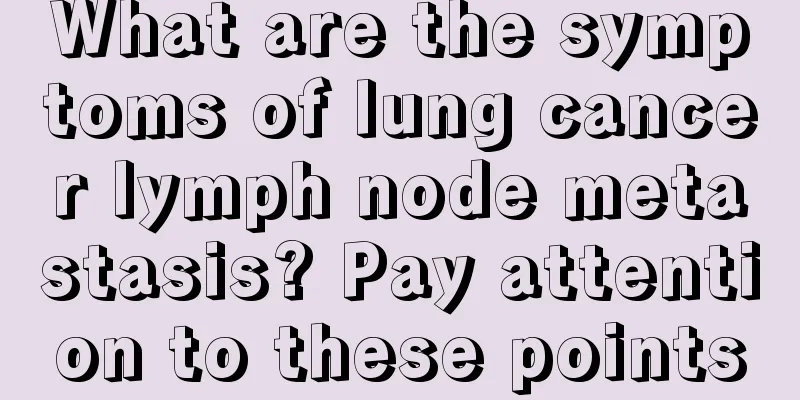What are the complications of late stage nasopharyngeal carcinoma?

|
In daily life, if you find symptoms of nasopharyngeal cancer, you should diagnose whether you have nasopharyngeal cancer. However, for the health of nasopharyngeal cancer patients, I hope everyone will pay attention to the symptoms of nasopharyngeal cancer as soon as possible, treat nasopharyngeal cancer symptomatically as soon as possible, and be healthy both physically and mentally as soon as possible. 1. Headache, tinnitus, and nasal congestion are the most common symptoms of late-stage nasopharyngeal carcinoma: (1) Headache: It is one of the most common clinical manifestations of late-stage nasopharyngeal carcinoma. Patients often experience persistent unilateral pain, mostly on the top of the face. (2) Tinnitus and hearing loss: In patients with nasopharyngeal carcinoma, tumor infiltration and compression of the Eustachian tube create negative pressure in the tympanic cavity. (3) Nasal congestion: As cancer cells continue to spread, the tumor invades the posterior nares or nasal cavity, causing obvious nasal congestion symptoms. 2. Symptoms of late stage nasopharyngeal cancer may include visual impairment, bloody discharge or nasal obstruction: (1) Visual impairment: When nasopharyngeal carcinoma tumor cells invade the eye socket or nerves related to the eyeball, the patient may experience visual impairment, exophthalmos, diplopia, and restricted eye movement. (2) Bloody discharge or nasal obstruction: Since the tumor blood vessels in the nasopharyngeal cavity are relatively fragile and the surface of the tumor is often covered with numerous membranes, there are symptoms of bloody discharge. In severe cases, there may be a lot of nasal obstruction. Bloody discharge often occurs in the morning, with bloody discharge from the mouth. The amount of blood is small and easy to be ignored. In the late stage, the amount of bleeding may increase, and in severe cases, anemia may occur. 3. Symptoms of late stage nasopharyngeal carcinoma may also include strabismus and diplopia: In addition to the above symptoms, nasopharyngeal carcinoma in the late stage may also cause double vision when looking outward due to tumor invasion of the abducens nerve; cancer cells invade the trochlear nerve, which may cause strabismus and diplopia; nasopharyngeal carcinoma directly invades or lymph nodes metastasize to the posterior styloid process or hypoglossal nerve canal, causing the hypoglossal nerve to be invaded, causing the tongue to deviate to the affected side, accompanied by atrophy of the tongue muscles on the affected side, etc. If patients with nasopharyngeal carcinoma have the above symptoms, it indicates that the disease is in the late stage and should be given timely and effective symptomatic treatment. The above content is an explanation of the symptoms of nasopharyngeal carcinoma. Do you already understand the symptoms of nasopharyngeal carcinoma? Be familiar with the delayed complications of nasopharyngeal carcinoma and provide reasonable and effective care, so as to turn "defeat" into "victory." |
<<: What are the early symptoms of nasopharyngeal carcinoma
>>: Early symptoms of nasopharyngeal carcinoma
Recommend
What medicine is better for diabetes insipidus
Patients with diabetes insipidus need timely trea...
What to do if you get acne due to inflammation in summer
The hot weather in summer not only makes people p...
What causes uterine teratoma
The formation of uterine teratoma is related to m...
Which mask is good at preventing dust
Masks generally have the function of dust prevent...
Why do I feel weak and sore all over?
There may be many reasons for general weakness an...
Can nasopharyngeal carcinoma cause jaw joint pain?
Can nasopharyngeal cancer cause jaw pain? 1. Pati...
What does honey lemon water counteract
When drinking honey water, you must pay attention...
Experts explain dietary considerations for laryngeal cancer
A reasonable diet is very important for laryngeal...
Which hospital is more professional in treating glioma
Which hospital is more professional for glioma tr...
What department should I go to for swollen feet
I believe many people have experienced swollen fe...
Symptoms of kidney deficiency and excessive liver fire What to eat for kidney yin deficiency
Many boys are told that they have kidney deficien...
What is the reason why babies hiccup?
Hiccups in babies are a very common phenomenon, w...
Seborrheic dermatitis on both sides of the nose
Seborrheic dermatitis is a common and frequently ...
Can lung CT detect lung cancer?
At this time, when the physical examination finds...
Why does my back turn purple and black after cupping?
After cupping, the skin on the back turns purple,...









